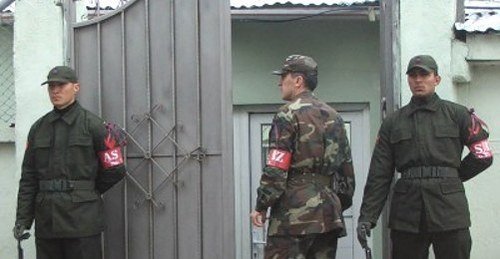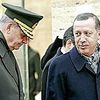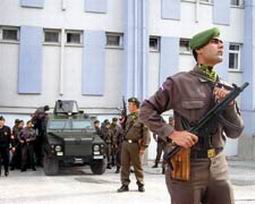On Thursday (9 July), the publication of amendments to legislation relating to the military and civilian judiciary systems in the official gazette has brought changes as to which court people will be tried at.
On 8 July, President Abdullah Gül ratified changes to Law 5918 and said that they did not violate the Law on the Foundation of Military Courts and Trial Procedure.
Strengthening of civilian judiciary
The amendments bring two changes:
For one, civilians will be tried in civilian courts: "In times of peace, civilians who commit a crime that falls within the powers of military courts, either alone or with members of the military, will be investigated by public prosecutors and tried in common courts."
Soldiers can be tried by civilian courts: If soldiers commit organised crimes, they will be tried in civilian heavy penal courts and not in military courts. Military courts will keep their authorities during wartime or during emergency rule.
Taking the objections of the military into account, the President ratified the law under the condition that additional legislation be passed to "dispel worries" of the military.
Gül added that the law was a step towards restricting military authority to military issues, in line with EU membership accession conditions.
Government spokesperson State Minister Cemil Çiçek said in a press briefing on Wednesday evening that once parliament reopened, the additional legislation desired by the President would be passed "speedily".
CHP will go to court
The amendment has been greeted with protests by the opposition Republican People's Party (CHP), which has announced that it will apply to the Constitutional Court to have the amendments quashed. According to the CHP, the amendments violate Article 145 of the Constitution.
While Cihan Paçacı, general secretary of the second opposition party, the Nationalist Movement Party (MHP), has referred to the CHP's planned application as "positive and appropriate", the MHP sees no need to add its signature. (TK/AG)
















